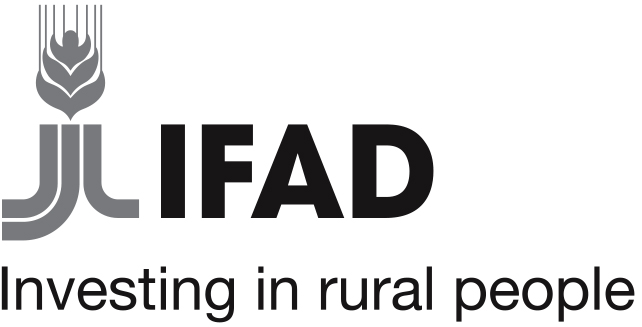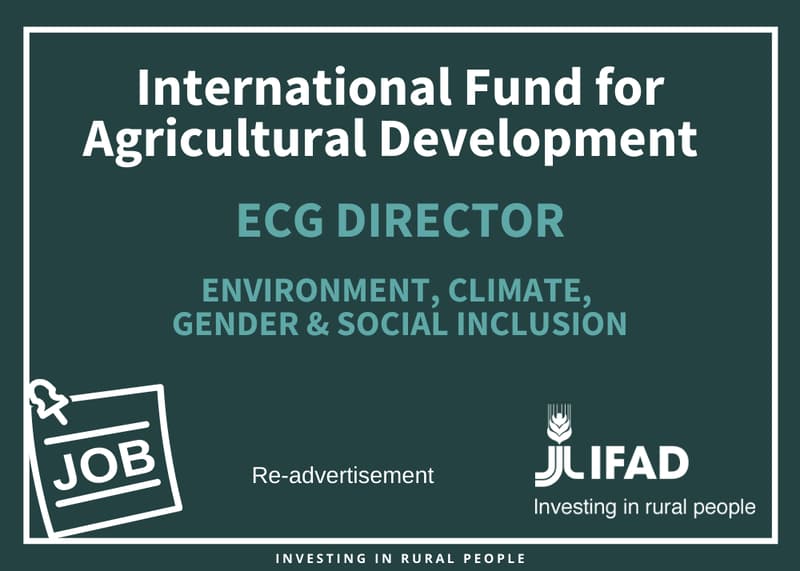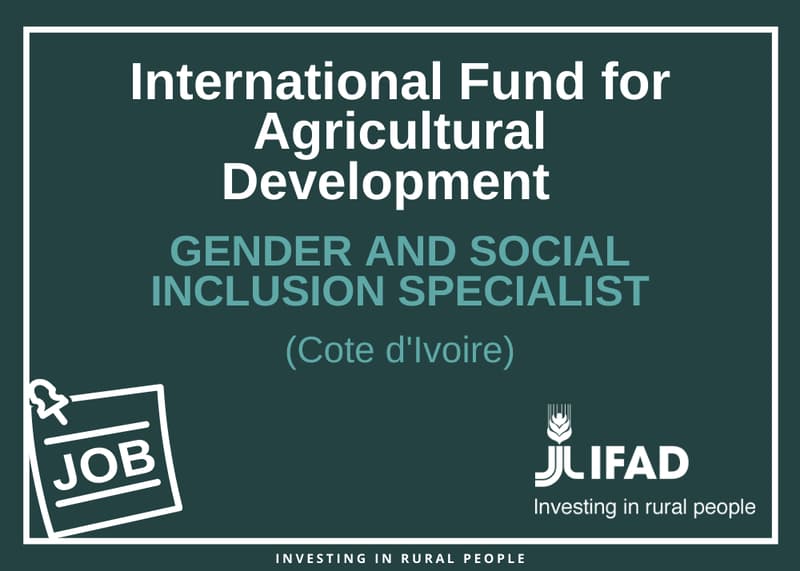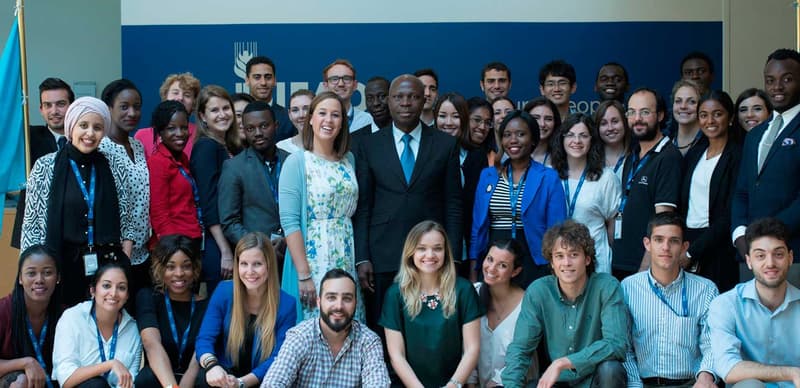Global Data Analyst (ILC Sec.)
Rome
- Organization: IFAD - International Fund for Agricultural Development
- Location: Rome
- Grade: Junior level - P-2, International Professional - Internationally recruited position
-
Occupational Groups:
- Statistics
- Information Technology and Computer Science
- Closing Date: 2023-12-04
Organizational Setting
The International Land Coalition (ILC) is a global alliance of 300+ civil society and intergovernmental organisations working together to put people at the centre of land governance through shifting power to the women, men and communities who live on and from the land. ILC network organizes around member-led National Land Coalitions as well as regional and global thematic platforms. ILC supports members, both directly and indirectly, by creating a more conducive policy environment at national and international level through evidence-based advocacy.
The support team to the ILC network (One Team) is hosted by various members of ILC that act as administrative hubs for the network, including the International Fund for Agricultural Development (IFAD) in Rome. The One Team carries the responsibility to provide support to the Coalition in the implementation of the ILC Strategy 2022-2030, being accountable to members and donors.
The Strategy, Network and Knowledge cluster provides strategic coordination and network engagement for system change by translating the strategy into tools, methods, approaches, mechanisms in support of ILC operations.
This position is in the Strategy, Network and Knowledge cluster of One Team, reporting directly to the Chief Strategy, Knowledge and Network. It is hosted by the International Fund for Agricultural Development (IFAD) in Rome. ILC Secretariat links back to IFAD via SKD.
Job Role
The Global Data Analyst (ILC Secretariat) facilitates ILC’s work under Objective Two of Strategy 2030, ensuring generating and use of people's data for impact across National Land Coalitions, regional and international platforms to advance people-centred land governance. Global Data Analyst (ILC Secretariat) is accountable for a range of technical functions pertaining to the overall data literacy, engagement and capacity building of data operations by ILC members.
As a member of One Team, the Global Data Analyst (ILC Secretariat) liaises closely with the global data team dispersed across the regions, including with Regional Coordinators and country teams on programme-related data and wider data systems. The incumbent ensures data quality and consistency of all data inputs across the system, ensures adherence to best practices in documentation, management and processing, collation, and analyses of data. The Global Data Analyst (ILC Secretariat) provides the necessary tools, manuals and templates to regional data leads and Regional Coordinators, ensuring their ability to support regional and country-level platforms, including by facilitating trainings or other capacity strengthening activities as needed.
The Global Data Analyst (ILC Secretariat) reports to the Chief Strategy, Knowledge and Network, is accountable to all ILC work leads and facilitates the ILC data team.
Key Functions and Results
DATA PROGRAMME COORDINATION: The Global Data Analyst (ILC Secretariat) supports the efficient and effective generation and use of people's data through LANDex and other data platforms supported by ILC in all National Land Coalitions (NLCs), regional and global platforms. This involves providing support in coordination across programme-related data and data systems, data analysis, and support to building capacities of country platforms on data collection and data use strategies for advocacy and monitoring of land-related SDGs, as required. Accountabilities may include:
- Manage LANDex – a tool to collect, centralise and promote people’s data on land governance – and related tools in their central role towards the achievement of ILC Strategic Objective two to generate, centralise and use people’s data for accountability and transparency.
- Facilitate overall uptake and implementation of LANDex by ILC members and partners at the national, regional and global level, and identify ongoing opportunities for the use of LANDexand people’s data in the new strategy 2022-2030.
- Optimise synergies and actions of regional data leads, National Land Coalitions facilitators and facilitators of relevant regional and global platforms around LANDex and other ILC-supported tools, related to land monitoring and data collection.
- Contribute to the formulation and management of all work related to Objective 2 in NLCs and other ILC member-led platforms, working with work leads and teams implementing Objectives 1 and 3.
- Liaise on communication related to LANDex, in close coordination with the ILC communications team, focused on high-impact products, moments and opportunities to leverage people’s data.
- Facilitate collaboration on data with other workleads, ensuring that people’s data and the operations of Objective 2 are well articulated with Objectives 1 and 3, and embedded in all ongoing ILC operations and processes.
- Carry out broad stocktaking on LANDex implementation, capturing member learnings and suggestions for improving the tool and resulting data for use by ILC members and partners.
- Regionalization of the LANDex tool through the building of regional packages based on LANDex and related tools, focusing on regional priorities and objectives.
- Maintain the LANDex website and sub-sites within it, identifying needs and best use of ILC resources.
- Support ILC involvement in other data platforms, including LandMatrix, LandMark, the member-led Alliance for Land, Indigenous and Environmental Defenders (ALLIED) and the SDG Land Momentum Group, facilitating their development, and engagement in them by National Land Coalitions and regional and global platforms.
- Support the ALLIED Defender Data Working Group [DWG] and defender data work, as well as people's data as it relates to the SDG Land Momentum Group, ensuring links between these data initiatives and ILC’s strategy.
- Ensure collection of data that is consistent with the ILC pledge to gender justice, ensuring the meaningful participation of women – established by quotas – across the data cycle while developing tools that capture the unique perspectives of women on questions of land governance. Consider products and publications that give emphasis to women's land rights and their central role in sustainable development.
- Aggregate data for ILC pledges. Monitor, provide data and report on ILC's Impact level indicators for ILC accountability.
- Facilitate data-focused partnerships to ensure harmonised actions and reporting to common donors.
DATA OUTREACH: The Global Data Analyst (ILC Secretariat) ensures data management and consistency across all programme-related data and ensures such data can contribute to wider land-data initiatives, within and beyond ILC. Accountabilities include:
- In coordination with Defender Data Working Group [DWG] and ALLIED, consolidate defender data in the LANDex platform, support the development and dissemination of strategic products for visibility and ongoing research and advocacy.
- Strengthen ties to global development frameworks and other land monitoring initiatives, and facilitate uptake, use and reporting of people's data as it relates to SDG, VGGT and GBF monitoring.
- Support a Data Package partnership with potential to increase the impact of ILC's data work.
- Collaborate to the development of impact products and templates with Knowledge Management and Learning colleagues.
- Support national, regional and global processes by which LANDex data is translated into key messages, killer facts and impact products.
- Support the Monitoring and Evaluation Team to identify key messages, killer facts and potential narratives for human impact stories that could be used in their contribution analyses.
DATA CAPACITY: The Global Data Analyst (ILC Secretariat) supports the building of capacity for people’s data throughout the network. Accountabilities include:
- Support the effective uptake of relevant LANDex indicators into NLCs and member-led platforms, consulting with members and supporting them on training and implementation as needed.
- Follow up on the development and implementation of regional and global platforms and NLC proposals and projects related to land monitoring and data generation.
- Support the integration of LANDex and other ILC-supported data tools into existing NLC workplans, in alignment with established regional priorities.
- Collaborate on Contribution Analyses and identify opportunities to analyse how LANDex could be better used to monitor changes and build narratives around people’s data for M&E.
PLANNING, MONITORING AND REPORTING: The Global Data Analyst (ILC Secretariat) is responsible to monitor and report ILC’s work on objective two in accordance with the planning, reporting and M&E systems of ILC. Accountabilities include:
- Support planning for Objective 2 across One Team in a robust, transparent and inclusive manner, ensuring a focused and strategic approach.
- Contribute to mobilise resources and establish relationships with donors, manage content of data-related funds or grants.
- Support ILC’s M&E and learning systems in the monitoring and reporting related to objective two to ensure outcome and impact are visible. This includes coordinating and contributing to writing of relevant sections in corporate reports and compiling donor reports for earmarked funding related to objective two.
- Support ILC's M&E team with reporting on ILC impact-level indicators in reports to the Coalition Council, Assembly of Members and donors.
- Ensure operations under objective two incorporate the gender justice action plan.
4. MANAGERIAL FUNCTIONS: The Global Data Analyst (ILC Secretariat) is accountable for upholding ILC and IFAD's core values and code of conduct, and integrity, transparency, and equity in the personal use of assigned ILC resources, including equipment and supplies.
Key Performance Indicators
The Global Data Analyst (ILC Secretariat) contributes to ILC’s reputation by showcasing its capacity for successful data collection and use. Technical analysis and synthesis of information and data, including database management, is the foundation for ILC’s work on data. Analytical documents and linked global land monitoring frameworks need to show ILC is making a difference in the data arena. Accurate analysis and presentation of information, evidence building, and fully documented work strengthens the capacity of the ILC country platforms and facilitates subsequent action by the Regional Coordinators, the Director ILC and other members of One Team to position ILC.
Working Relationships
In the context of programme development and delivery, the Global Data Analyst (ILC Secretariat) ensures the exchange of technical information as well as builds and maintains collaborative working relationships with counterparts and other partners to enhance consistency and reliability in the work of the ILC network. The incumbent establishes and maintains relationships and projects the image of ILC as a credible and reliable facilitator in data work and supports members in strengthening their capacities to monitor and report against progress in achieving people-centred land governance. A wide network is maintained to be effective in linking beyond the ILC and in drawing good practice into the work of ILC.
A positive outlook of ILC as a credible and reliable development partner is emphasised in the maintenance of relationships with counterparts.
Job Profile Requirements
Organizational Competencies:
Level 1:
- Building relationships and partnerships - Builds and maintains effective working relationships
- Communicating and negotiating - Communicates effectively; creates understanding between self and others
- Demonstrating leadership - Personal leadership and attitude to change
- Focusing on clients - Focuses on clients
- Learning, sharing knowledge and innovating - Continuously seeks to learn, shares knowledge & innovates
- Managing time, resources and information - Manages own time, information and resources effectively
- Problem-solving and decision-making - Demonstrates sound problem-solving and decision-making ability
- Strategic thinking and organizational development - Personal influence
- Team working - Contributes effectively to the team
Education:
- Level - Advanced university degree from an accredited institution listed on https://www.whed.net/home.php in a technically relevant area (*). The advanced university degree may be substituted by a first university degree (bachelor or equivalent) in the above-mentioned subjects plus at least four additional years of relevant professional experience, over and above the minimum number of years of experience outlined below.
- Areas - accounting, business administration, development, economics, geography, international relations, or related areas. Professional qualifications in Statistics, data analytics, M&E, Digital and ICT would be an added value.
(*) Note: For internal candidates, this requirement will be assessed in line with the provisions set forth in the IFAD’s Human Resources Implementing Procedures.
Experience:
- At least two (2) years of progressively responsible professional experience in development institutions and/or government service.
- Position-specific experience: Qualifying work experience in data support in country programmes, management of analytic data packages, engagement with diverse sources of data, including citizen-generated data, production of analytic reports and management of data for decision making, operations management and/or loan/grant administration with International financial institutions, development cooperation agencies, etc., would be an asset.
Experience in the following is also an asset:
- Familiarity with Civil Society Organizations and network dynamics and land governance issues
- Capacity to communicate fluently with different counterparts (civil society, government authorities, local communities, academia) to align parties and build networks.
- Capacity to organize and deploy trainings on land data monitoring
Languages:
- Required: English (4 – Excellent)
- Desirable: French or Spanish
Skills:
- Procedure adherence: Ability to strictly adhere to established, formal guidelines, including in new situations
- IFAD partners: Knowledge of IFAD's partners' functioning and mandate , such as the public sector (e.g. governments and policy, institutions and system), non-state actors (NGOs, CSOs, Foundations, etc.) and private sector actors
- Advanced data analytics: Statistical & econometrics research, forensic and advanced data analytics / data mining
- Analytical skills: Outstanding ability to analyse and synthesize qualitative and/or quantitative information from a variety of sources and filter out key insights and recommendations
- Time management: Adherence to deadlines under time constraints and pressure (e.g. to deliver governing body documents on time); ability to coordinate and manage complex workflows and in-house and external teams
- Adaptability: Adaptability and flexibility when facing new or unexpected situations, and to specific constraints and circumstances and managing complex processes
- Basic ICT & digital fluency: High level of digital literacy and ability to quickly get familiar with new digital tools (e.g. ability to carry out EPR data entry and extraction when budgeting; monitoring security systems, uploading content to inter/intra-net websites, etc.)
- Client orientation: Strong critical thinking combined with communication skills to liaise between the business and technologies to understand business problems and needs, document requirements and identify solutions
- Initiative and good judgment: High sense of proactive initiative-taking and good judgement (including on security matters)
- Integrity and ethics: Strong emphasis on acting with honesty, not tolerating unethical behaviour, demonstrating equity, impartiality and sensitivity in exercising authority and interacting with staff, and other stakeholders. Conduct must be guided by IFAD core values, the Code of conduct and a high sense of ethics.
- Interpersonal skills: Ability to deal patiently and tactfully with others (e.g. visitors, clients, callers, etc.), including senior individuals (e.g. high-level meeting participants)
- Problem solving: Strong systemic and structured thinking, ability to identify and dissect problems into components and formulate a comprehensive set of creative viable and sustainable solutions and strategies
- Project/Programme mgmt (incl. coordination, design, development): Know-how in Project design and evaluation
Other Information
The appointment to this one-year fixed-term position is limited to service with the ILC Secretariat and entails no expectation of service, indefinite appointment or conversion to any other type of appointment within IFAD. The source of funding for the appointment to this position is the ILC account administered by IFAD on behalf of the ILC.
Possible extensions of this appointment are subject to the presence of a valid agreement between IFAD and the ILC, continued existence of the position and functional needs, satisfactory conduct and performance as well as availability of funding from the ILC account.
The ILC is a network of 300+ organizations governed by its global Assembly of Members. IFAD hosts the global ILC secretariat in its Headquarters. ILC staff are governed by IFAD's legal instruments including the general provisions of the Human Resources Policy, the Staff Rules, the HR Implementing Procedures unless specified otherwise in the Memorandum of Understanding.
In accordance with IFAD’s provisions, all new staff members will normally be placed at the first step in the grade level for which they have been selected. For information on IFAD’s remuneration package, please visit IFAD’s compensation and benefits page on our website. Applicants are invited to use the ICSC compensation calculator to estimate the salary and benefit entitlements. See here.
IFAD is an Equal Opportunity Employer and does not discriminate on the basis of ethnic, social or political background, colour, nationality, religion, age, gender, disability, marital status, family size or sexual orientation.
Please be aware of fraudulent job offers. IFAD does not charge any fees at any stage of the recruitment process. Official communication from IFAD will always come from e-mails ending in @ifad.org
In the interest of making most cost-effective use of funds and resources, we are only able to respond to applicants who are short-listed for interview. Candidates who do not receive any feedback within three months should consider their application unsuccessful.










